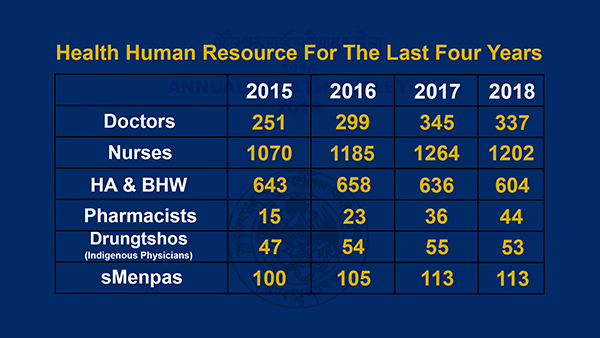 Health ministry is in short of 2201 medical professionals at various categories including specialists, nurses, and technicians. This is as per the recently released Annual Health Bulletin 2019.
Health ministry is in short of 2201 medical professionals at various categories including specialists, nurses, and technicians. This is as per the recently released Annual Health Bulletin 2019.
Inadequacy of health workers both in terms of quantity and quality has been persistent and a critical challenge for the health ministry.
2018 saw the highest number of decrease in the number of doctors, nurses, health assistants, and basic health workers compared to the previous years. But the report does not outline the reasons for the decrease.
On the other hand, the health bulletin mentioned that in the last five years, the total health workforce including the administrative and support staff has increased from nearly 4700 to around 5,300.
And going by the records of the National Referral Hospital, 2018 recorded the highest nurse attrition rate with 55 leaving the profession. Of it, about 51 voluntarily resigned. And this year, 14 nurses voluntarily left the profession.
However, the shortage of health professionals is likely to resolve with the parliament passing the pay revision last month. With this, the allowances of health professionals have risen to a reasonable level. The government reserved health allowances a top priority to encourage and retain health professionals in the country.
In addition, Foreign Minister during meet the press session last month said, hiring specialists from India is expected to solve the medical specialists requirement in the country. He said media reports of the Prime Minister Dr Lotay Tshering practicing on Saturdays has sparked interest among the Indian medical fraternity to come to work in Bhutan.
The health ministry also signed a memorandum of understanding with the Bangladeshi Health and Family Welfare in April this year during the Prime Minister’s first visit to Dhaka. With the signing, Bhutan is expected to receive 20 specialists and four sub-specialists.








